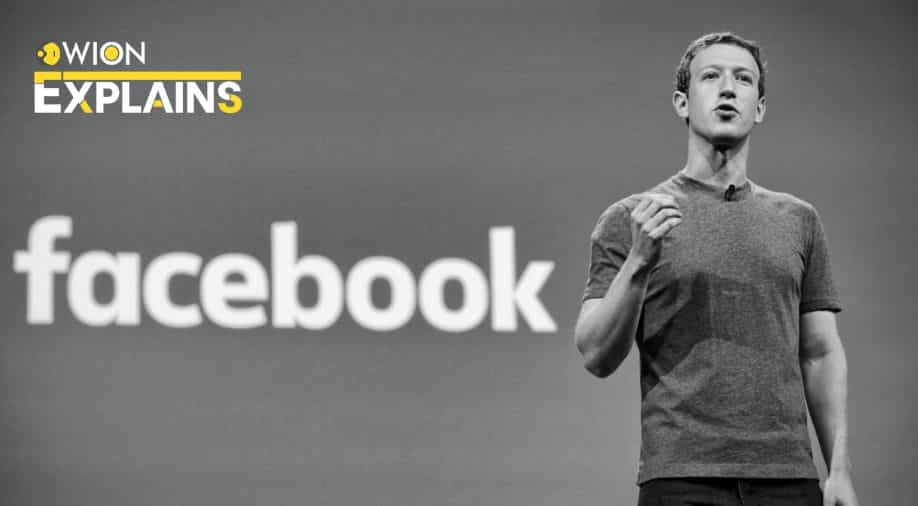
February 4, 2024 is the day when Facebook becomes exactly a two-decade-old company. It was 20 years back when Mark Zuckerberg created the social media giant, a watershed moment for the digital space. Facebook changed our interactions forever as humanity witnessed the first wave of social networking and the ensuing development of online communities. Today, on Facebook’s birthday, it becomes imperative to highlight the 20-year-long journey of the social media behemoth.
2004: The year Zuckerberg conceived Facebook
Before Facebook, let’s talk about Orkut. The social media company, named after its creator, Google employee Orkut Büyükkökten, came to life on January 22, 2004. Initially, users could become fans of their friends and rate them as Trustworthy, Cool, or Sext on a scale of 1 to 3. Orkut allowed access to everyone’s profile, except those on a designated ‘ignore list.’
By 2008, it became one of India’s most visited websites, establishing itself as the premier social network. By 2014, traffic from India was the platform’s second-highest globally, trailing only Brazil.
Less than two weeks after Orkut’s debut, a group of Harvard University students launched what would become the most influential social media network of all time. A “face book” traditionally referred to a student directory in American universities featuring photos and basic information, initially offline until 2003.
Watch: Facebook CEO Mark Zuckerberg apologises to families of exploited children
During this time, Harvard student Mark Zuckerberg told the Harvard Crimson, the oldest continuously published daily college newspaper in the US, that he could create a ‘universal face book’ within Harvard in a week. Zuckerberg and fellow Harvard student Eduardo Saverin each invested $1,000, and on February 4, 2004, they launched ‘TheFacebook’.
And then Facebook arrived…
Facebook quickly expanded to other Ivy League universities and gradually to colleges and universities across the United States. By September 2005, it opened its doors to high school students, and later that year, it became available to anyone over the age of 13 with a valid email address. 2005 was the year when TheFacebook became Facebook.
The company’s user base grew exponentially. By 2005, Facebook crossed the 6 million mark and soared beyond 300 million members by the end of the decade.
How has Facebook evolved?
Facebook literally dominated the digital, social networking space through the personalisation of content during this period. Facebook introduced features such as the News Feed in 2006, which personalised content for users and the Like button in 2009, which became a fundamental aspect of the platform’s interaction model.
In 2007, Facebook further evolved, by enabling monetisation on its platform and embracing third-party developers. In 2007, Facebook launched the Facebook Platform, allowing third-party developers to create applications that could be integrated into the platform. This move contributed to the rapid expansion of the Facebook ecosystem, with thousands of apps being developed and shared on the platform.
Facebook then began experimenting with advertising and monetisation strategies, introducing targeted advertising based on user data and behaviour. The introduction of Facebook Ads in 2007 marked the beginning of Facebook’s journey towards becoming a major player in the digital advertising space.
Facebook truly evolved quite strategically, which seemingly resonated with its users worldwide. Facebook strategically acquired companies and integrated new features to enhance user experience and functionality. Key acquisitions during this period include the purchase of photo-sharing service Instagram in 2012 and messaging app WhatsApp in 2014.
2018: When the privacy scandal hit Facebook
In 2018, Facebook announced the suspension of Strategic Communication Laboratories (SCL) and its subsidiary, Cambridge Analytica, known for providing digital voter outreach services to the Donald Trump presidential campaign.
According to a statement from Facebook’s vice president and deputy general counsel, Cambridge Analytica obtained user data through a third-party app, violating the platform’s policies safeguarding user information. The data was initially collected by Aleksandr Kogan, a Russian-American psychology professor, who developed a Facebook app and enlisted around 270,000 volunteers to participate in a personality quiz, consenting to share their profile information with Kogan for academic purposes.
Subsequently, Kogan transferred the data to Cambridge Analytica. Upon discovering the violation in 2015, Facebook removed the app and requested Cambridge Analytica to confirm the deletion of the collected data.
On March 17, 2018, a joint investigation by the New York Times and the Observer of London disclosed that Cambridge Analytica acquired data from 50 million American Facebook users through Kogan’s app. The investigation revealed that Cambridge Analytica funded the app’s development and utilised the gathered information to craft targeted political advertisements for the Trump campaign. Contrary to Facebook’s request in 2015, the newspapers reported that at least some of the data remained undeleted.
Later in 2018, the New York Times reported that Facebook offered more of its users’ data to companies than it has admitted.
October 2021: Facebook becomes Meta
Zuckerberg announced Facebook was changing its corporate name to “Meta,” as a rebranding move amid wide-ranging scrutiny of its various platforms after a whistleblower leaked hundreds of internal documents.
Further, in March 2022, Meta was sued by Washington, DC Attorney General Karl Racine for allegedly misleading the public on the company’s handling of privacy and personal data in connection with the Cambridge Analytica scandal.
Some might argue Facebook’s best days have long gone already, but Meta’s popularity is still unmatched in digital space, with Instagram hitting 2.4 billion users (up from 110 million in 2013) and Facebook crossing the 3 billion threshold by 2023.
This post was originally published on this site be sure to check out more of their content







